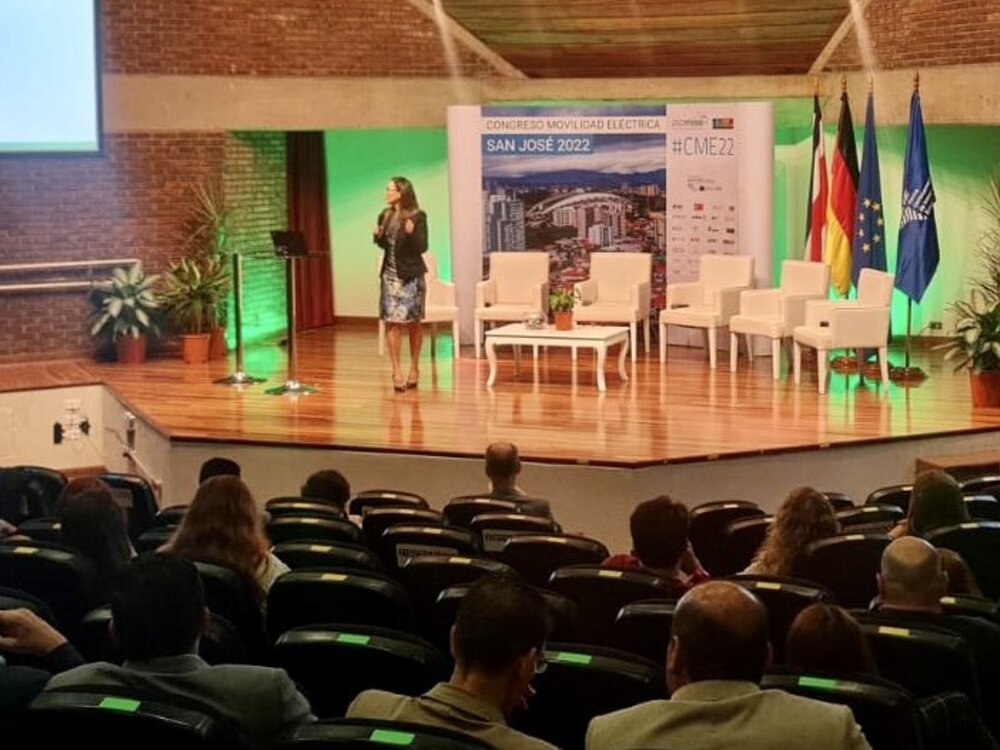San José 2022 Electric Mobility Congress is promoted through the Green MSMEs Initiative of CABEI, the European Union and KfW

CABEI in Costa Rica supports zero-emission transportation initiatives and projects from the private and public sectors.
San José, July 1st, 2022 - In order to contribute to the decarbonization of the transportation sector in Costa Rica and the region, the Central American Bank for Economic Integration (CABEI), the European Union, through its Latin American Investment Facility (LAIF), and the Government of Germany through KfW, are sponsoring through the Green MSMEs II Initiative, the "San José 2022 Electric Mobility Congress", which is developed by the Costa Rican Electric Mobility Association (ASOMOVE).
"Costa Rica is one of CABEI's founding members at the forefront of decarbonizing its economy, and environmental sustainability is a transversal axis of our Institutional Strategy, which is why we constantly support the development of zero-emissions transportation initiatives and projects. Activities such as this one are crucial for drawing up a clear roadmap and identifying how we can support the country in fulfilling our role as the region's Green Bank," said CABEI Executive President, Dr. Dante Mossi.
The event was opened by the Ambassador of the European Union in Costa Rica, María Antonia Calvo Puerta, who highlighted the importance of this type of activities to advance the country's efforts towards the transition to a green economy.
Subsequently, CABEI announced the objective of the tripartite Green MSMEs initiative, which is to provide financial and technical support for environmental investments, such as renewable energy, energy efficiency and cleaner production, whose credit resources are channeled through financial intermediaries under competitive conditions, with long terms, attractive interest rates and grace periods for MSMEs.
CABEI supports various electric mobility projects in the country, from the private and non-sovereign public sector, for example, financing for the acquisition of hybrid vehicles, electric buses, and the Limonense Electric Freight Train, which already has feasibility studies with the support of the multilateral.
To comply with the 2030 Agenda, Costa Rica has several regulatory frameworks to advance sustainability, such as the National Decarbonization Plan, the National Electric Transportation Plan and Law 9518 on Incentives and Promotion for Electric Mobility and its regulations. It is also the third country in Latin America with the most electric vehicles per capita, and the first in Central America and the Caribbean with a network of more than 100 charging points.



